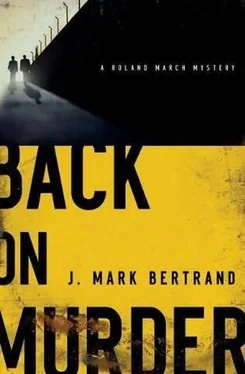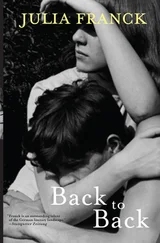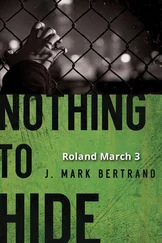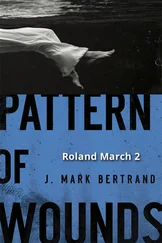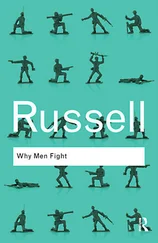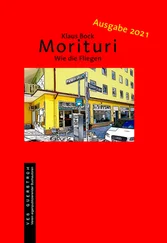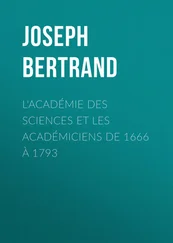“Joe Thomson?”
A pause. “So you did know him. I’m sorry to hear that. Does it change anything?” He listens for an answer, but on my end nothing comes. “March?”
“I’ll handle it, sir. This one’s mine.”
PART 2. WHILE WE WERE YET SINNERS
The corpse of Octavio Morales, with its mask of beatific agony, had put me in mind of some martyred Spanish saint, but Joe Thomson’s puckered wince is more pedestrian, the look of a man who’s just smashed his thumb with a hammer, or remembered an errand he’d promised then failed to perform. Rimmed in black, the contact wound over his right ear raised a blood stamp roughly conforming to the muzzle of a sig Sauer P229, the same as the service pistol he still clutches in his right hand. The cavernous exit, blasting out the top left side of the head, sprayed wet tissue over the interior windows, the projectile embedding itself in the door pillar. We have a neat, self-contained scene, one that tells a straightforward, though tragic story.
“What were you thinking?” I ask under my breath, peering at him, willing the lips to move, but of course that’s not going to happen. To my shame, in spite of the spectacle of a man’s death – a man I had met and spoken with, a man whose life I knew a little about – my thoughts are entirely focused on the loss Thomson’s death represents to me. No shooters named in the Morales case, no damning testimony against Reg Keller or Tony Salazar. The fact that my captain sees this as an avenue toward redemption doesn’t comfort me much, since I’d been planning to return in triumph, thoroughly vindicated, and not as a kneeling supplicant.
The smell of burnt gunpowder is still strong, in spite of the open driver’s side door and the post-rain mist. My nostrils twitch, and the sound of the revolver going off in my lap fills my head. A sympathetic ache in my thigh reminds me, that could be you. I step back, glancing at the droplets clinging like dew to the exterior of Thomson’s vehicle, a several-year-old blue gmc Yukon.
“Good to see you again, sir.”
At my elbow, an eager kid in the garb of a crime-scene investigator smiles at me, giving no sign of being affected by the scene. I nod.
“Remember me?” he says. “Edgar Castro. We talked about that other case…?”
“Right. Castro. I remember. Let’s get to work here, okay?”
Overhead, a muddy gray sky threatens a repeat of the shower I drove over in. In spite of the sticky air, the first responder, a squared-away young patrolman named Nguyen, still wears a dripping poncho over his uniform. After Castro’s eagerness, I appreciate the businesslike demeanor of Nguyen. I take him to one side and let him rattle off his satisfyingly precise report. He responded to a call from dispatch at 6:04 a.m., arriving at the scene seven minutes later, where he secured the victim’s vehicle and did a preliminary interview of the security guard who called in the shooting.
“His name is Wendell Cropper,” he says, nodding toward a uniformed security guard having a smoke just outside the perimeter tape. “First thing out of his mouth is, he used to be on hpd back in the mid-nineties, which is funny because he should have known better than to disturb the scene.”
“What did he do?”
Nguyen makes a pistol out of his fingers. “He opened the door and uncocked the pistol, then pushed the victim’s finger out of the trigger guard. Said he was afraid it might go off again. Then he shut the door and called us.”
“The car door was unlocked?”
Nguyen nods.
“Okay, I want to have a talk with Mr. Cropper.”
The security guard flicks his cigarette away at my approach. I lift the tape, letting him duck underneath. He’s about my age, mid-forties, with a lean, smooth face and thick black eyebrows knitted together in the middle. Pale skin, but a charcoal shadow of beard in need of shaving. His uniform consists of fatigue pants and a short-sleeved shirt with epaulets and his name embroidered over the pocket.
“What exactly is it that you secure?” I ask.
He points with two fingers, like he’s still holding the cigarette between them, sweeping a row of gray corrugated buildings behind the tall hurricane fence.
“I got these warehouses here, and then some others a street over, which is where my security office is. About four in the morning, while I was doing a foot patrol, I heard what sounded like a gunshot off in the distance. I couldn’t tell where it come from, so I just noted the time – 4:14 a.m. – and went on with my route.”
“You didn’t call it in?”
“I wasn’t a hundred percent sure,” he says. “Plus, I know you boys got better ways to occupy your time than hunting down random gunshots in the night.” He alternates between crossing his arms and resting his hands on his hips, unable to find a comfortable posture. “In hindsight, I guess that’s what I should’ve done, but the rain started up and, honestly, I started second-guessing myself.”
An hour later, though, he’d hopped behind the wheel of his truck and done another circuit, finding Thomson’s Yukon.
“From the exhaust I could tell the engine was running, so I got out and walked up alongside. Soon as I flashed my light on the window, I knew something was wrong.” He gives an exaggerated gulp. “All that blood and brain on the glass.”
He’s apologetic about interfering, but says he’d heard a story before he left the police department of somebody taking a bullet at a crime scene because a cocked pistol hadn’t been rendered safe. He reached in without thinking and uncocked Thomson’s gun.
“Why’d you leave HPD, Mr. Cropper?”
The question prompts some thinking on his part, but after I remind him how easily these things can be checked, he admits the department cut him loose.
“I had a whole series of problems,” he says with a bashful smile completely at odds with his rough appearance. “The main thing was, I didn’t like all the reports, so I’d kinda forget to do them, you know? This work here, it’s much more suited to my temperament.” He pronounces the word as temper mint. “I don’t mind the hours or the solitude.”
When police officers daydream about bagging the job for some high-paying private sector security gig, this isn’t what they typically have in mind. Consulting on matters of security is where the money is. Actually securing things? Not so lucrative. Cropper’s a type I’ve encountered before, desperate to be part of the real action in spite of his reluctance to admit disappointment with the turn his career’s taken. In that light, his behavior makes sense. He didn’t think we’d be irritated at his tampering with the suicide weapon so much as grateful that he’d prevented the dead man’s punching an officer’s ticket from the grave.
As I’m conducting the preliminary interviews, detectives start trickling onto the scene. Mack Ordway rambles up with grim-faced determination, followed by Hedges and Bascombe, who apparently shared a car. Aguilar arrives with a few others, and a while later, bringing up the rear, Lorenz reports in. He walks toward Bascombe, but when he gets close, the lieutenant moves my way.
“You up to this, March?” he asks.
“A suicide? I think so. Don’t forget, I’ve had a lot of experience.”
He nods. “Then maybe it’s time to get the canvass going. Put some of these detectives to work.”
Across the street from the warehouses, a scrawny hedge of pines screens a residential neighborhood lit by amber streetlights, the mist forming haloes around their bulbs. I gather up the detectives, give them a rundown on the situation, and make the canvass assignments. As I speak, eyes cut frequently to Bascombe as if saying, Is this for real? We’re taking orders from this guy? The lieutenant ignores them. Before we break up, Hedges offers a few words.
Читать дальше
